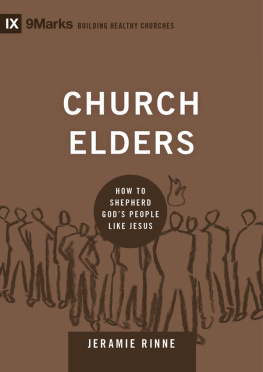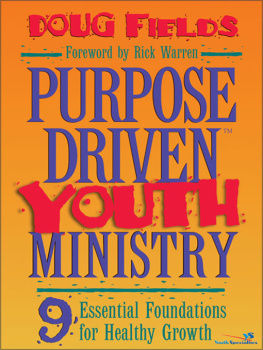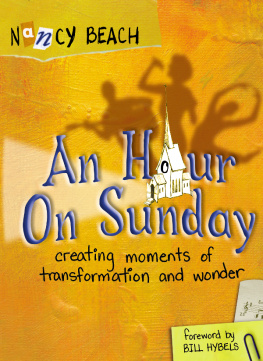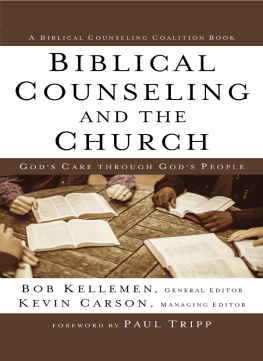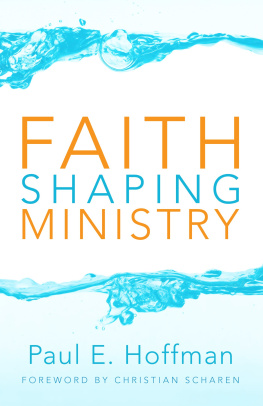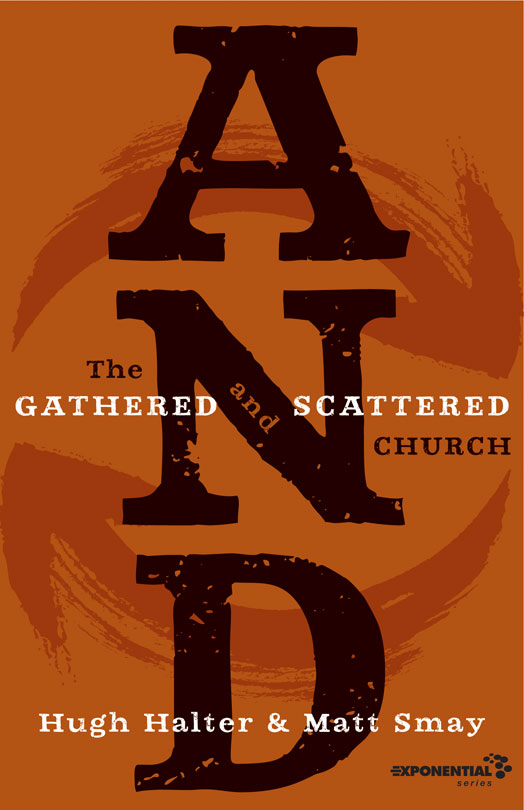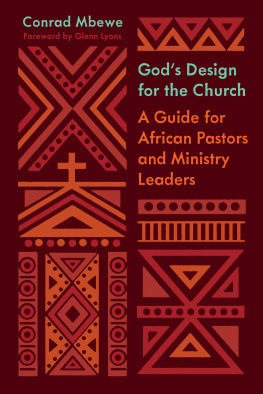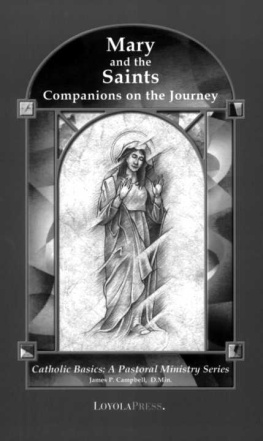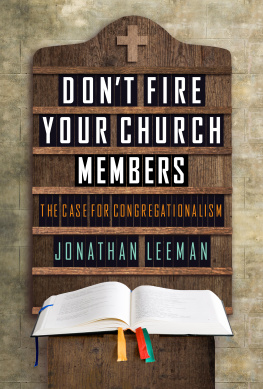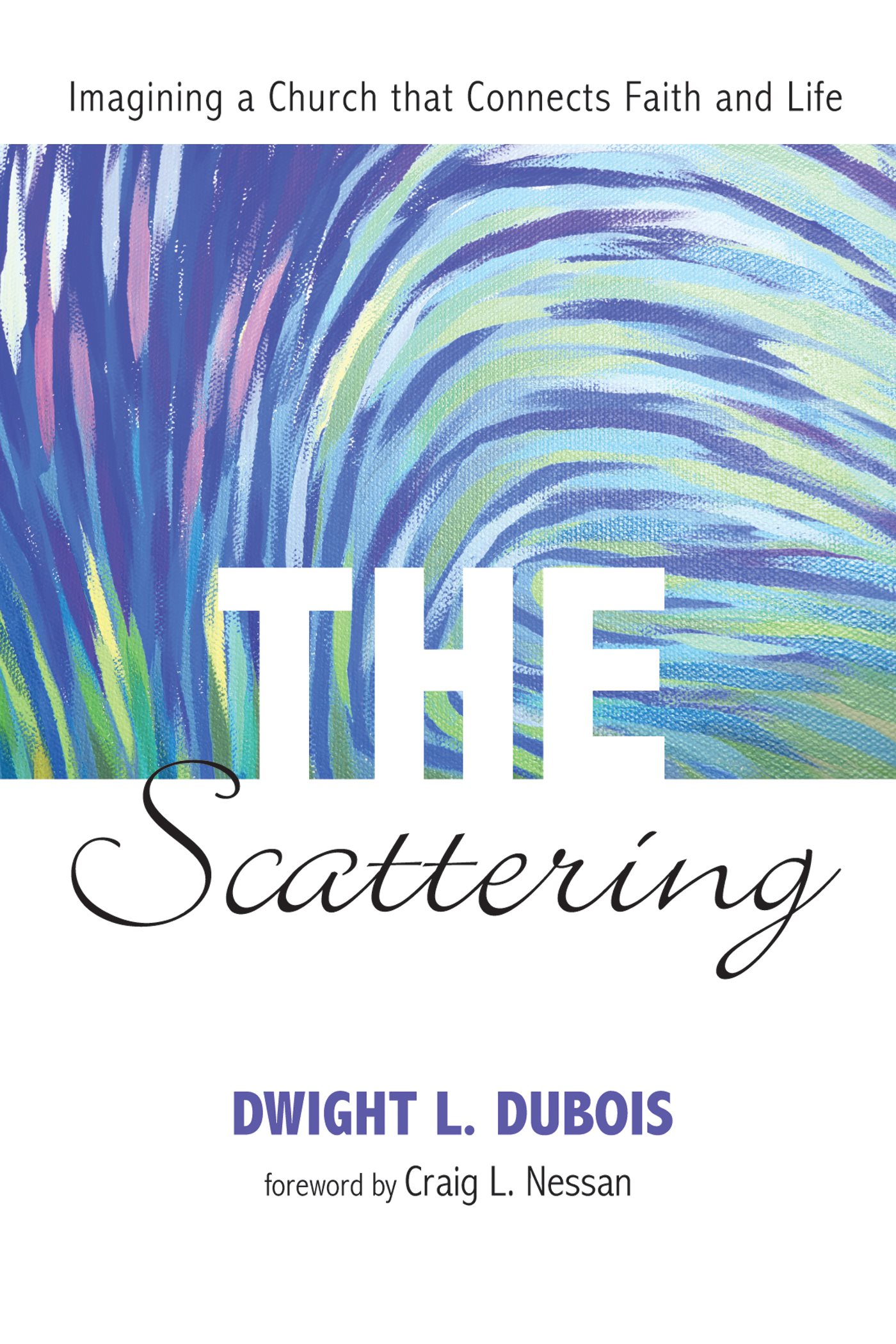The gifts he gave were that some would be apostles, some prophets, some evangelists, some pastors and teachers, to equip the saints for the work of ministry, for building up the body of Christ, until all of us come to the unity of the faith and of the knowledge of the Son of God, to maturity, to the measure of the full stature of Christ.
Foreword
I magination is more important than knowledge (Albert Einstein). The Reformation fostered amazing imagination for the renewal of the church through the reinvigoration of the universal priesthood. Luther and the Reformers imagined a church in which all members of the church were so grounded in their baptismal identity in Jesus Christ that they would claim their Christian vocation to live out this calling in all the occupations of daily life. This imagination was to serve as a corrective to a hierarchical structure, in which clerics climbed the ranks of power and privilege, effectively defining and controlling what it meant to be church. For many historical reasons what unfolded after the Reformation were instead new forms of clericalism, according to which evolved ever new dependency structures of the laity upon the clergy. While there have been exceptions to this pattern, for example among the churches of the Radical Reformation, the exceptions prove the rule among the Protestant mainstream.
Dwight DuBois here kindles again as for the first time imagination for a church that discovers its vitality and purpose through the sending of members into all the nooks and crannies of their varied lives. The language used is original and dynamic: the gathered church must always be seen in dynamic relationship to what he provocatively names the scattered church. This means that the mission of the gathered church always entails the formation of the baptized for connecting faith and life. Even more, it means holding all the baptized, clergy and laity, accountable for asking how their daily ministries have led to the service of neighbors in the world as often as the church regathers. This language has promise for moving us beyond clergy/lay dichotomies, insofar as all members are to be fully engaged in neighbor love as the aim of the Gospels mission. This vision and language provide a fresh way of interpreting who we are and what we do as the church of Jesus Christ.
The authors proposal is based on an intuition about the need for the revival of the institutional church based on that holy imagination, as it originated in the Holy Scriptures and bubbled up again at the time of the Reformation. This book, however, offers much more than intuition, or even imagination. This book provides fascinating qualitative research about an inexplicable gap between pastors and church members regarding their perceptions of whether and how the church is succeeding to equip the saints for the work, building up the body of Christ (Eph :). The disparity between the responses of pastors and church members related to this line of inquiry is nothing short of stunning. DuBois carefully analyzes and interprets where the problem lies, aptly naming the resistance to change as the churchs autoimmune disorder. An autoimmune disorder involves the bodys immune system errantly attacking and destroying healthy body tissue. If the church is the body of Christ, our autoimmune disorder involves the subtle yet manifold ways that the church establishes institutional survival as its real agenda at the expense of connecting the following of Jesus with serving everyday neighborsat home or school, in the workplace and community, locally and globally. While DuBois clearly affirms the critical importance of the gathered church, including a robust infrastructure, the fundamental alignment of the churchs business always needs to be oriented toward sending people out of the churchs doors, rather than capturing them inside a building.
As the author articulates, vital church communities always are in motion between those things that are essential to forming identity in Christ Jesus and those things that proceed outwards in mission based on that identity. The churchs autoimmune disorder interrupts the God-intended ceaseless cycle between the gathering and the sending. Mending the churchs theology of ordained ministry is key to healing this disorder. Only when the pastors of Christs church understand ordination itself as ultimately in service to the ministry of the baptized in the world can our stuck church system begin to be reformed. How can the ministry of Word and sacrament be reimagined and reoriented? We must understand that the proclamation of the Word and administration of the sacraments are finally, according to Luther, about Christian freedom. This means the proclamation of the Gospel and the sacramental encounter with Jesus Christ are about freedom from everything that impedes us from being and living as the persons God created us to be. And the means of grace always also equally involve freedom for loving and serving the neighbors, whom God gives us every moment of our lives! Bonhoeffers warning about the dangers of cheap grace continues to hit us in the gut. We bask in our freedom from sin, death, and the devil. But we continue to suffer from our chronic autoimmune disorder in relation to freedom for serving neighbors in our families, daily work, local communities, and global relationships. The ongoing reformation of the church is inextricably dependent upon the conversion of pastors to recognize and affirm that ordained ministry is to be directed entirely toward the vitality of a servant church lived out in the everyday lives of church members.
A renewed appreciation for the ancient office of the deacon has potential to serve as another catalyst for the New Reformation imagined in this book. The ministry of Jesus Christ was itself in essence diaconal ministry, the ministry of service to neighbors in need. Deacons exist for the sake of connecting church and world, bringing the needs of the world to the attention of the church and the compassion of Christ through the church in ministering to those needs. While deacons function as those who themselves are engaged in addressing the worlds gaping needs through direct service, even more crucial for the future of the church is the role of the deacon in catalyzing the ministry of the laity as agents of Christs mission in all the arenas of their daily lives. If ministers of Word and sacrament are able to catch the vision of a diaconal church, then they can become the greatest allies and boosters of the ministry of deacons, learning to work in partnership with deacons for the sake of the ministry of the baptized as the ultimate telos of Gods purposes for the church. Then comes the end, when Jesus Christ hands over the kingdom to God the Father, after he has destroyed every ruler and every authority and power ( Cor :). The shalom of God, which Jesus described as the in-breaking of the kingdom, means that healing, reconciliation, forgiveness, and loving service belong to the future of Gods purposes for the entire world. The church serves as an agent of Gods shalom for the life of the world or is no body of Christ.
This book provides much practical grist for how the church may not only imagine but also implement practices for transforming the church from a status quo whose future bodes continuing decline into a servant church, a caring church that longs to be a partner in Christs sacrifice and clothed in Christs humanity. The Einstein quote cited above concludes: For knowledge is limited to all we now know and understand, while imagination embraces the entire world, and all there ever will be to know and understand. Because God in Christ by the power of the Spirit has not yet fulfilled the divine purposes of equipping a dynamic servant church through the full engagement of the baptized in Christian neighborliness, we have reason to continue to pray and hope and work for what the Triune God yet intends to accomplish among us, so that God may be all in all ( Cor :).


